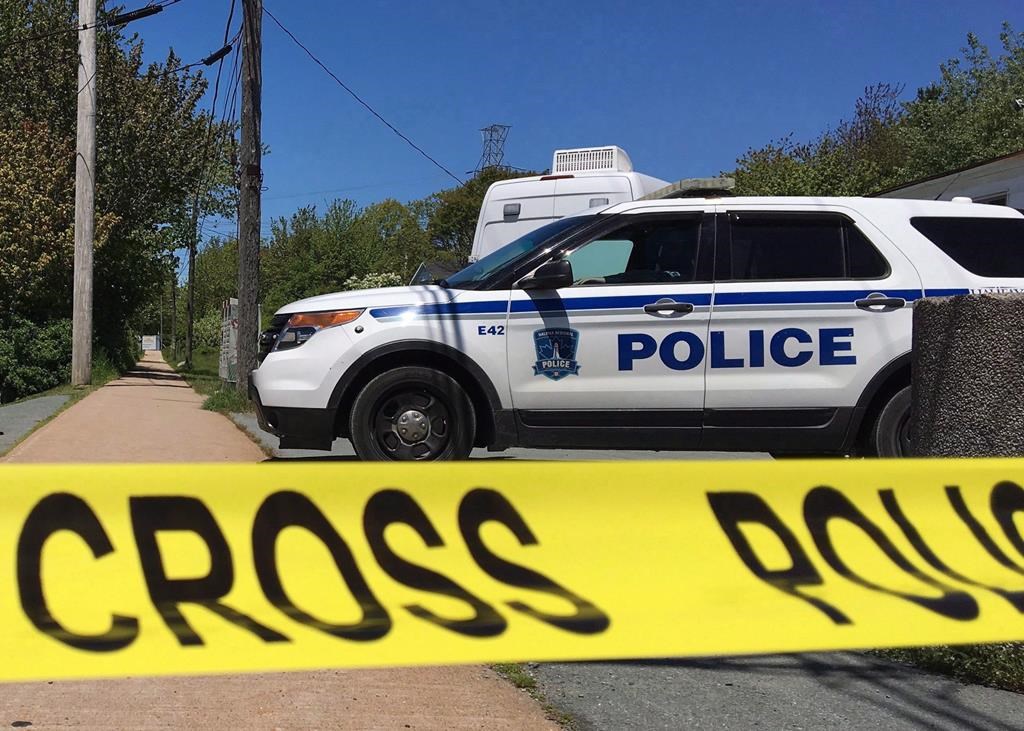B.C. sex workers want a say in Ontario legal battle against prostitution laws
Posted Apr 3, 2013 10:57:15 PM.
This article is more than 5 years old.
VANCOUVER – Sheryl Kiselbach has worked in the sex trade nearly half her life, and at 62 years old, she has expertise she said Canada’s highest court needs to hear when it decides if the nation’s prostitution laws are unconstitutional.
Kiselbach is one of many British Columbian sex trade workers represented by lawyers and advocacy groups applying to intervene in a June Supreme Court of Canada hearing.
They want to be allowed to tell their stories of street-based sex work, with the hope the evidence will sway the court to abolish Canada’s current laws surrounding prostitution.
The prostitution-advocacy organizations announced their application to intervene in the court fight at a news conference in Vancouver on Wednesday.
“Sex work is work,” Kiselbach said. “It should be perceived as such, as is any other career or work in our land.”
The Supreme Court case will essentially determine whether the prostitution laws violate the Charter of Rights and Freedoms. While selling sex is technically legal in Canada, the Criminal Code prohibits many of the activities surrounding it. Current laws prohibit living off “the avails” of prostitution, engaging in prostitution at indoor bawdy houses, and communicating with potential clients for the purposes of securing “a date.”
However, Kiselbach said such provisions should be wiped from the books because they violate sex workers’ rights to freedom, security and equal treatment under the law.
“When (people) think of a sex worker, they think of somebody who’s leaning against a pole, with high boots under a light. That’s only 10 to 15 per cent of … the sex-work population. Those kinds of biases need to be thrown out,” she said.
The federal hearing will have a direct effect on sex workers across the country, and Kiselbach said it’s important the court hears the unique experiences of those in B.C.
“I was a sex worker for 30 years,” Kiselbach said. “I was a street-level sex worker, I worked indoors, I did sex-industry dancing.”
While she went into the sex trade with her icy-blue eyes “wide open” because she wanted to make fast cash and travel the world, Kiselbach said that isn’t the case with many who sell themselves to put food on the table.
She is now working as the violence prevention co-ordinator at PACE Society, a Vancouver-based support and prostitution-advocacy group, and Kiselbach said she sees her fair share of women who sell sex to survive.
“Some people are exploited, some people are pushed, some people don’t have any options,” she said.
Prohibitive prostitution laws force sex workers to into risky business, Kiselbach added.
“Many times I didn’t report things,” she said, of her work during the 1980s. “You’d get the idea that (police) think, ‘Well, you deserve it, you put yourself in that place.'”
Relationships with police in Vancouver have improved since then but aren’t perfect, Kiselbach said, adding that she ultimately hopes prostitutes will stop being treated as criminals, and stop viewing themselves as such.
It’s why, Kiselbach said, she and other organizations such as the Pivot Legal Society and Sex Workers United Against Violence are pushing for “survival” and street-based sex workers to have their say in Ontario’s courts as interveners.
“Every sex worker’s story is a little bit different, Kiselbach said. “We can’t all be put into one pot, you know?”
Representing these sex-worker advocacy groups is Lawyer Kat Kinch, who said it will be up to the Supreme Court to assess whether the B.C. groups bring new evidence to support the case, which stems from a 2007 ruling involving former dominatrix Terry-Lynne Bedford.
Kinch said she expects to hear if B.C. sex workers will be granted intervener status in May, a month before the high court hearings begin.
The Canadian Bar Association’s criminal law section co-chair said B.C. sex workers know better than anyone how over-zealous prostitution laws can marginalize a vulnerable portion of society.
“British Columbia has just been through a major soul-searching effort with regard to how we’ve treated vulnerable women who find themselves in the sex trade,” association lawyer Paul Pearson said in a telephone interview.
“The (Robert) Pickton case exemplified the most horrible of circumstances and how these women can be marginalized to the extent that they disappear and a serial killer can go undetected,” Pearson said.
He said it’s highly unlikely those calling for an outright ban on the sex trade will ever get their way.
“There’s a reason it’s called the oldest profession. It’s going to go on,” Pearson said, adding lawmakers can often get caught in the complex grey area of harm mitigation, and trying to create legislation that protects prostitutes from abusive pimps and shady back-alley dealings.
“It’s a very difficult line to draw between the voluntary, sophisticated woman who wants to earn money by engaging in prostitution, and the woman who’s being either trafficked or exploited or dominated or abused in such a fashion that she’s forced into that position,” he said.
“It’s not an easy one to resolve.”










